BRICS Academic Forum Held in Moscow
The Forum brought together more than 200 representatives from the expert community across all BRICS countries to discuss the topic ‘BRICS: New Figures at the Global Chessboard.’ The forum was organised by the BRICS Expert Council–Russia, which operates on the basis of HSE University. The event’s opening ceremony featured the representatives of the Ministry of Foreign Affairs, the State Duma, as well as HSE University Rector Nikita Anisimov and HSE Vice Rector, Russian W20 Sherpa Victoria Panova.
The Forum's inaugural session began with a moment of silence as the participants honoured the memory of the late Iranian President Ebrahim Raisi, who died in an aviation accident on May 19.
Deputy Prime Minister of the Russian Federation, Alexey Overchuk, sent his greetings to the Forum's participants. He highlighted the critical role that the expert community plays in developing the BRICS agenda and proposing pragmatic approaches to resolving various problems and challenges. A range of initiatives that were suggested by the group’s experts in prior years have already been implemented. Today, BRICS commands significant political authority and colossal economic potential. The countries within the group account for 35.6% of global GDP, which is more than the share of the so-called Group of Seven countries, and are home to 45% of the world's population.
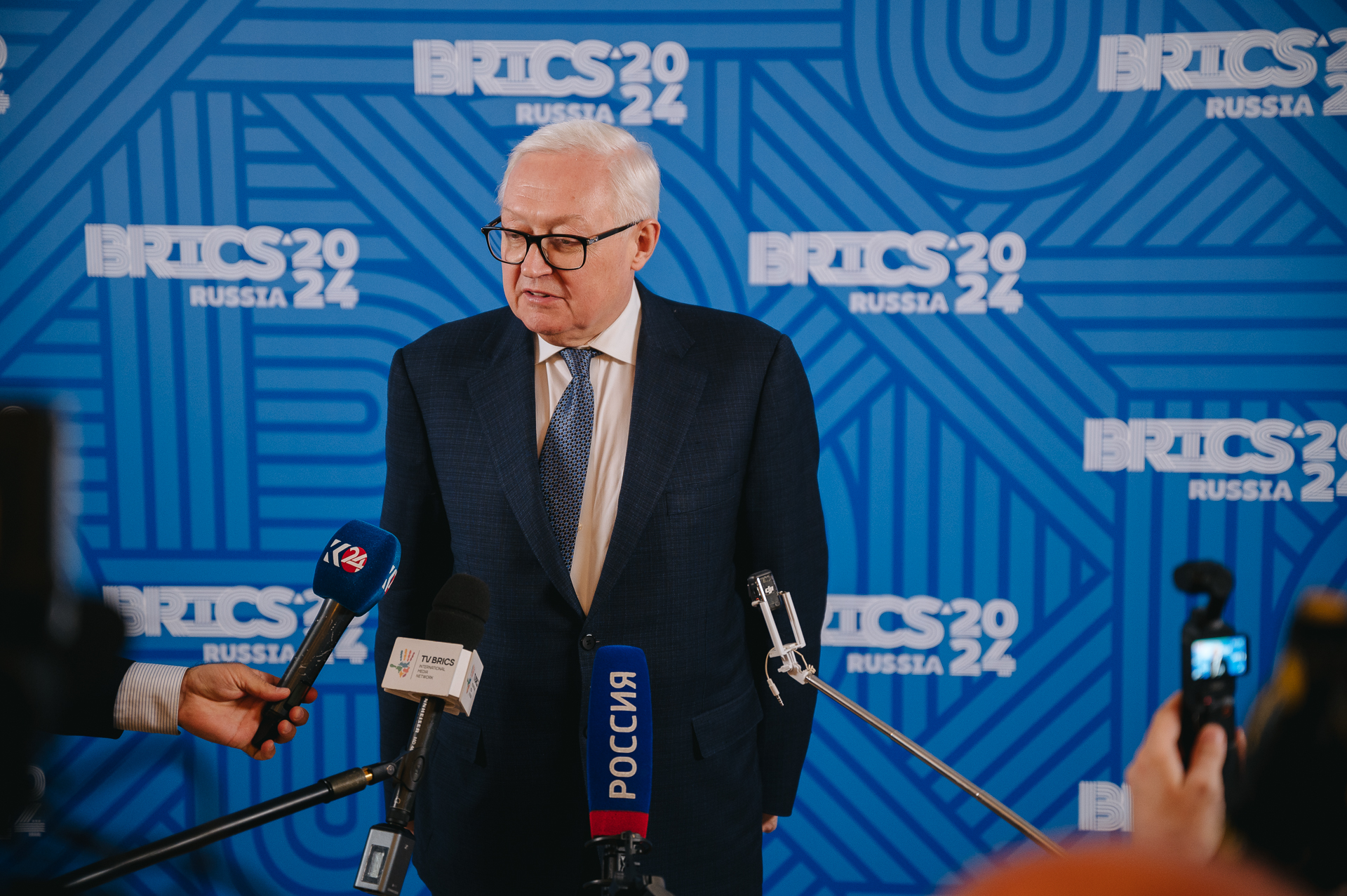
At the conference’s opening ceremony Sergey Ryabkov, Deputy Foreign Minister of the Russian Federation and Russia's BRICS Sherpa, stressed that the Academic Forum has established itself as an authoritative expert platform which enables an informal exchange of views on the most pressing issues of partnership.
The motto of the Russian BRICS chairship in 2024 is ‘strengthening multilateralism for just peace and security.’ Russia aims at constructive cooperation based on the principles of equality and striving for development. According to Ryabkov, another priority of the Russian chairship is the integration of member countries.
BRICS countries focus on developing an innovative partnership strategy and expanding economic cooperation. The group strengthens the role of the member countries in the global monetary system. The countries also continue to fight terrorism and growing challenges in the information space.
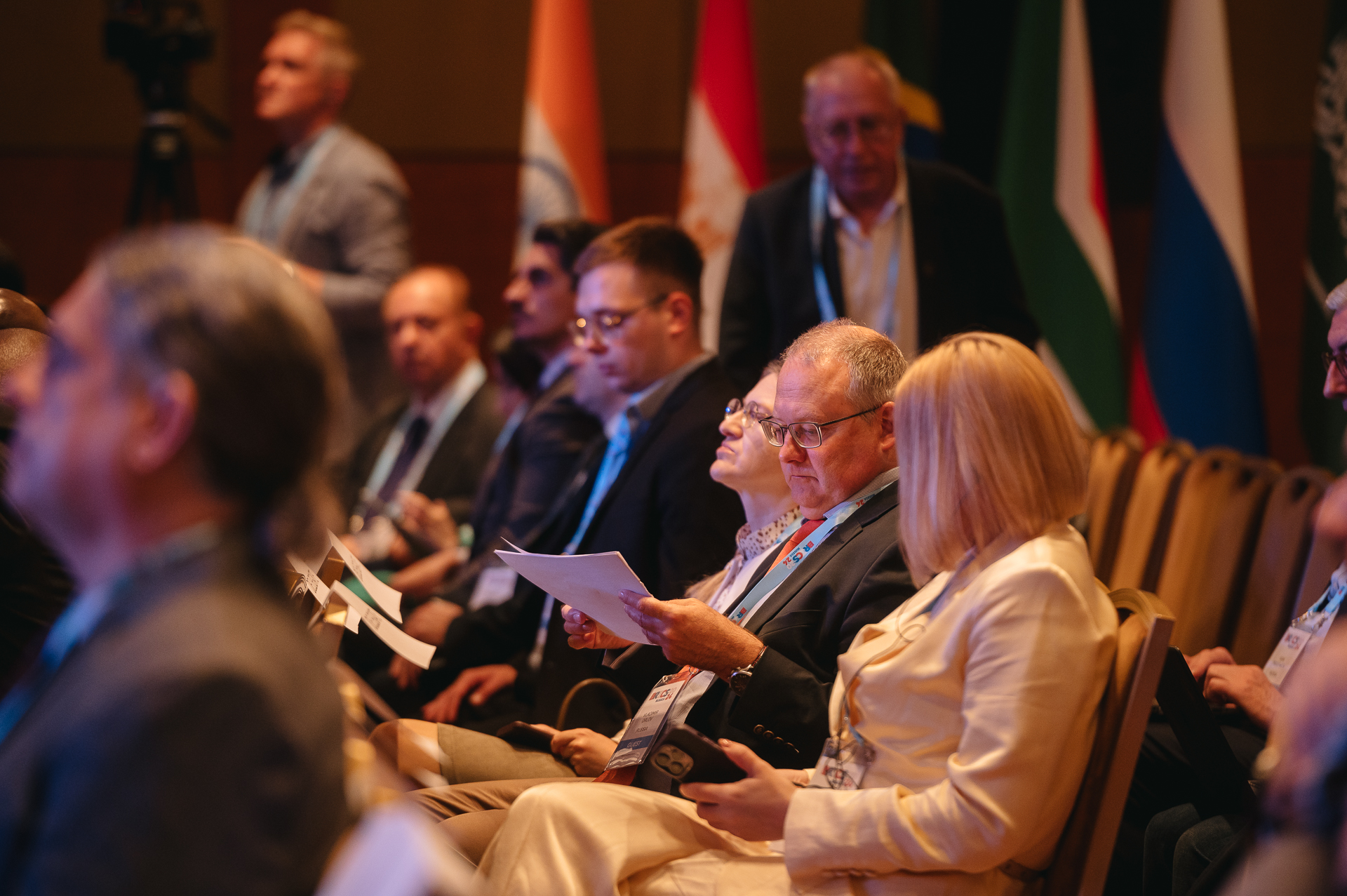
Ryabkov added that BRICS countries account for 40% of global oil production and a third of food production, which increases their role in ensuring energy and food security in the world. At the same time, the members actively discuss technological innovations and platforms for cooperation in the field of artificial intelligence, which can impact global economic development. Russia promotes the code of ethics in the field of AI developed by Russian experts. Sergey Ryabkov also highlighted the progress of BRICS in healthcare.
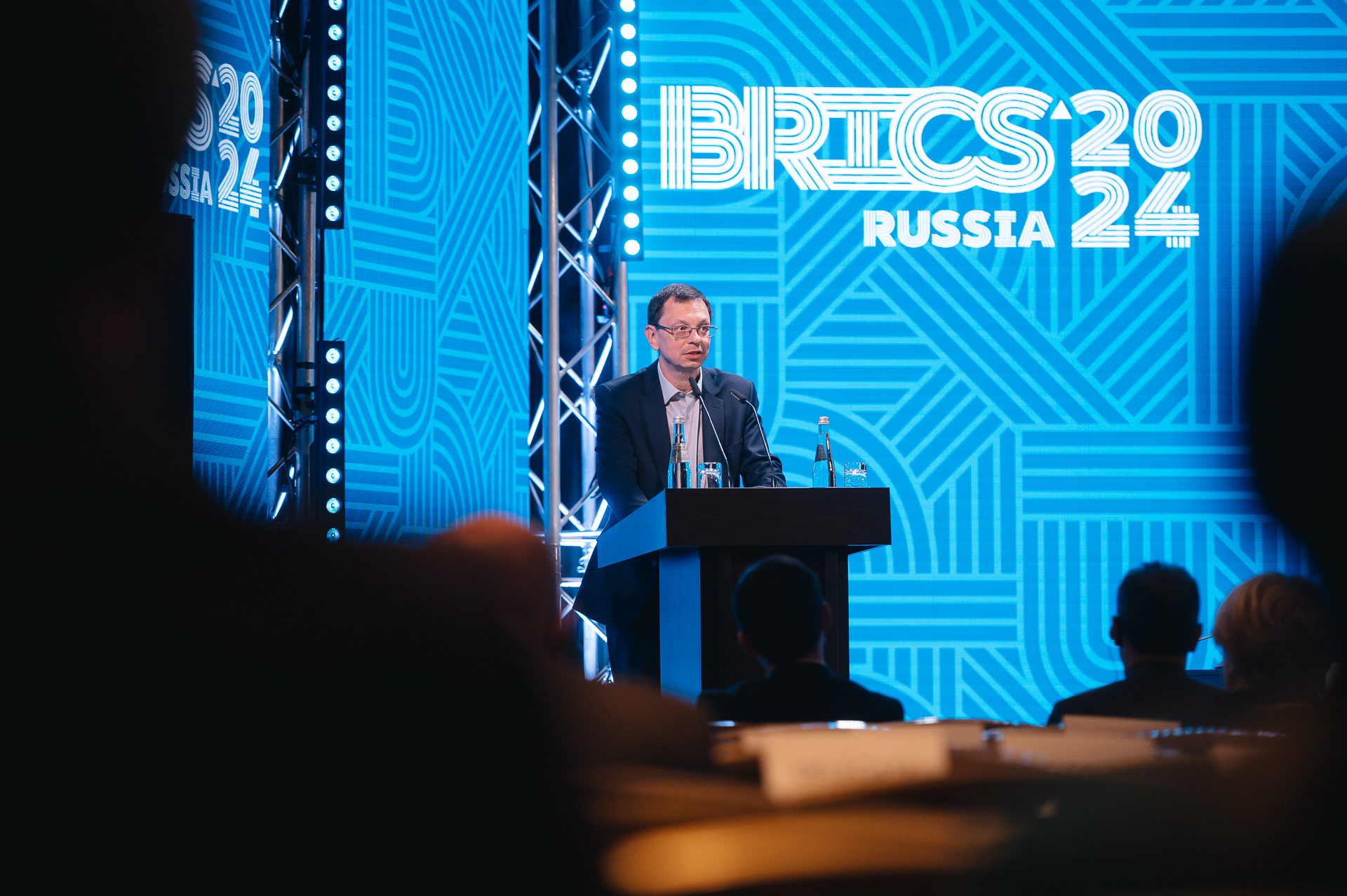
The BRICS agenda was rich in events, but the Academic Forum was important for everyone involved in science and education in our countries, said Nikita Anisimov, HSE University Rector. For HSE University, academic research and expert work is a priority, and work performed within the BRICS framework plays a major role. The Rector noted that it is HSE University that has become the basis for the creation of the BRICS Expert Council–Russia, which coordinates the work of the group's expert and social track. ‘We will do everything to make the BRICS expert work productive,’ assured Nikita Anisimov.
Humanitarian cooperation is one of the BRICS pillars. Science and education are shaping the future, promoting and accelerating progress, and maximum results can be achieved only in terms of international cooperation. The Academic Forum has become a place that brought together the best scientific forces of BRICS countries. The efforts of scientists are aimed at the benefit and development of the entire association.
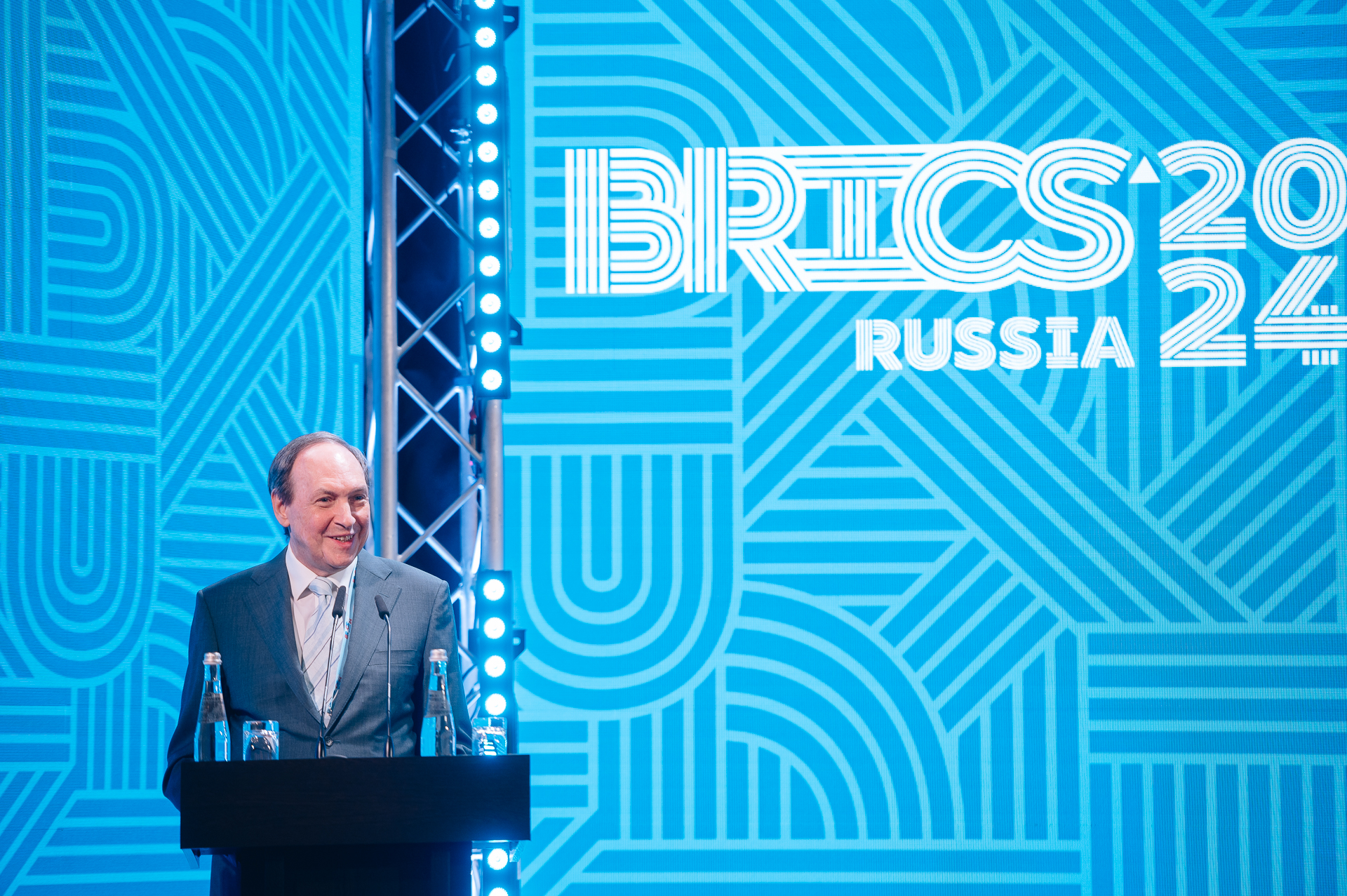
First Deputy Chair of the Committee on International Affairs of the State Duma of the Russian Federation Federal Assembly and Board Chair of the National Committee on BRICS Research, Vyacheslav Nikonov, stressed that the expansion of BRICS increases the community of the group’s scientists. ‘We come out with proposals that become documents by consensus of the participants. Our role is to develop new ideas, many of them have already been applied and will be implemented when building a new world. BRICS is the construction of the future, it is a union of sovereign nations with common values who want to live in peace with all mankind,’ said Vyacheslav Nikonov.
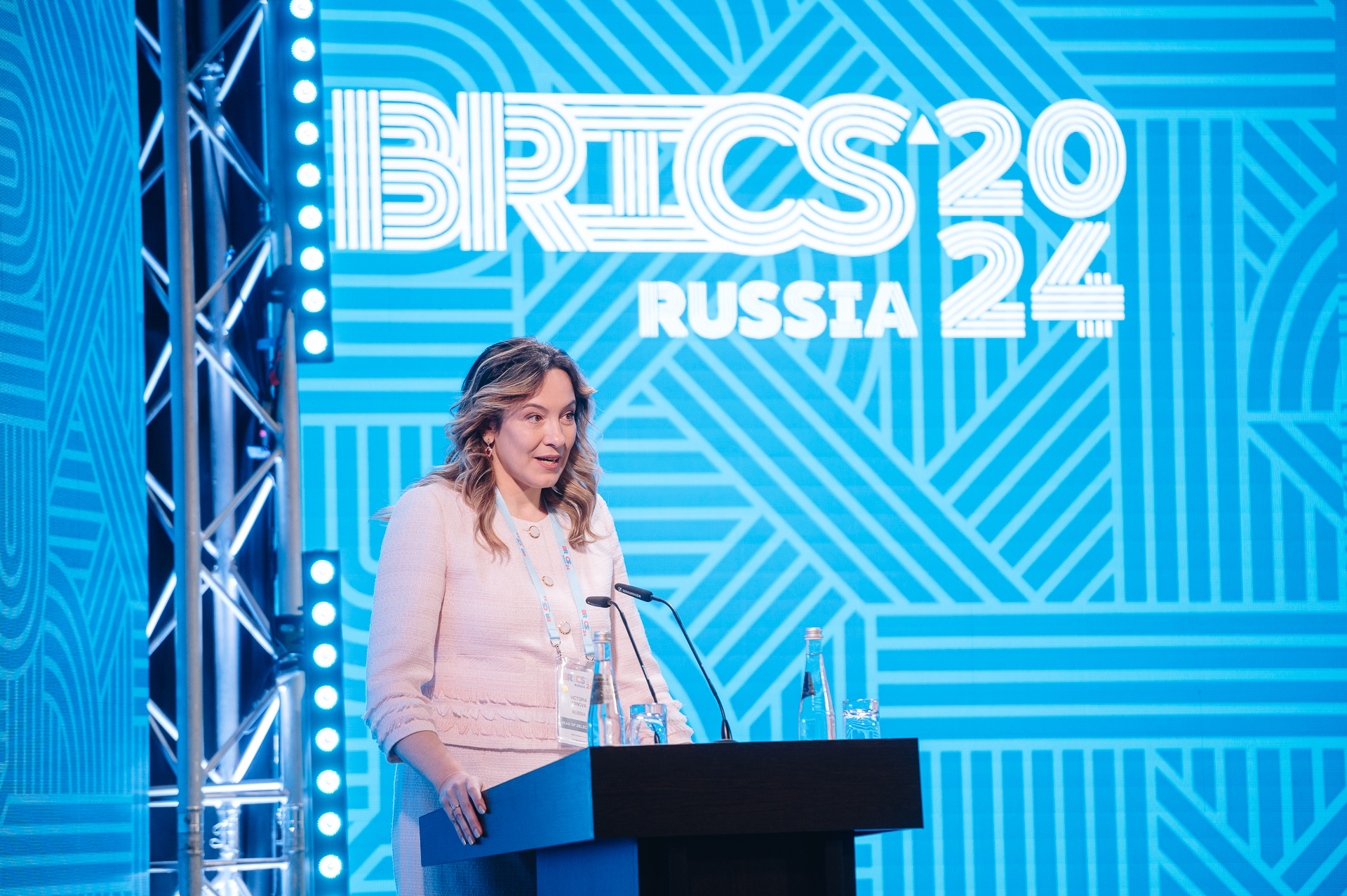
In her welcoming remarks, HSE University Vice Rector Victoria Panova, who serves as Head of the BRICS Expert Council–Russia, noted that the expert communities in the BRICS member states have been cooperating productively over the course of more than 15 years and began their joint work even before the first BRICS Summit in 2009. The BRICS Expert Council–Russia, established by the decision of the heads of member states, sets a strategic vector for the development of the association and implements specific initiatives.
This year, experts from the countries that have recently joined BRICS took part in the Forum for the first time. ‘New member states will undoubtedly enrich the partnership with fresh ideas. I wish to bring attention to the fact that the doors of expert community remain open for all those who understand the importance of BRICS as one of the institutions of global governance, who understand the need for international expert dialogue, and as well as for those who recognize that the politicization of scientific and academic cooperation is unacceptable. BRICS countries are always open to equal, non-discriminatory partnership,’ said HSE Vice Rector.
Victoria Panova highlighted that the Forum unites the countries interested in strengthening the role of the community, and that are ready for an open, non-discriminatory dialogue in the world.
‘BRICS has many advantages, but human capital is the most important one. Currently, the group accounts for about half of the world's population. The Academic Forum and all other BRICS expert events not only promote the group’s ideas, but also build strong ties between scientific and academic communities, while also creating opportunities for individual cooperation between scientists and researchers from all BRICS countries,’ summed up Victoria Panova.
